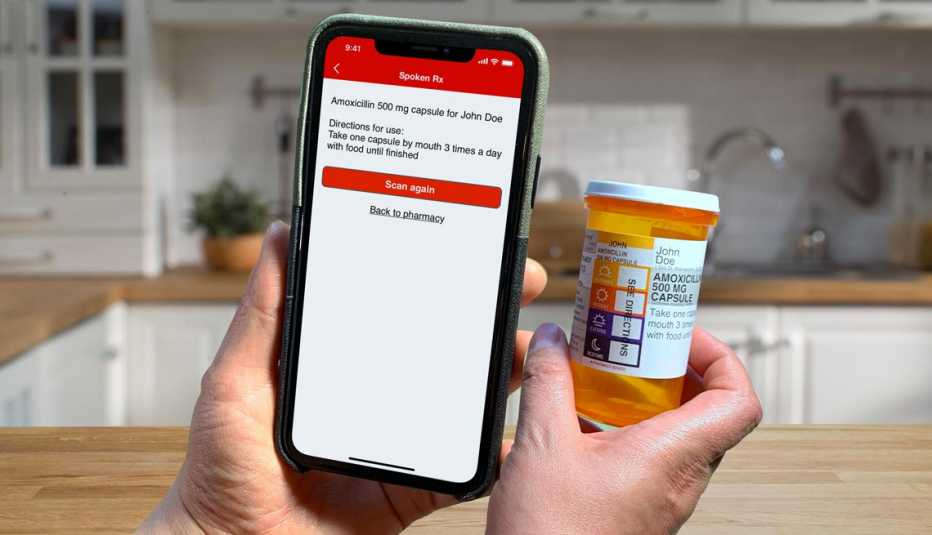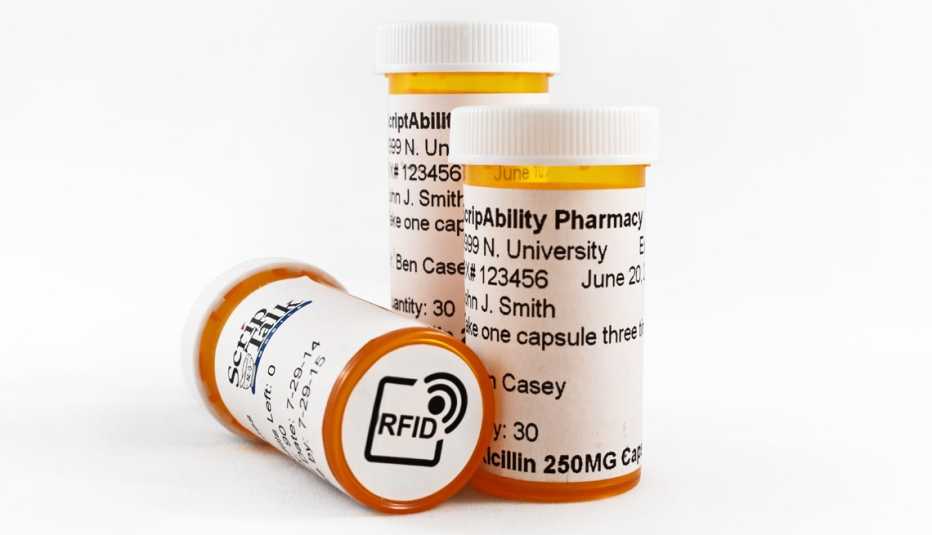Staying Fit


As some people age, they may have trouble reading prescription labels, knowing what dose to take and identifying proper pills.


AARP Membership— $12 for your first year when you sign up for Automatic Renewal
Get instant access to members-only products and hundreds of discounts, a free second membership, and a subscription to AARP the Magazine.
Mistakes can have life-threatening consequences. The challenge is exacerbated for folks who don’t see well or have a severe visual impairment though some blind people have learned to figure out which pill is which by feeling its shape or texture.
Let the label do the talking
Many pharmacies are introducing other options that promise to be far more reliable: letting a prescription label tell you what’s in the bottle, including drug names, dosage, warnings and other information. More precisely, you’ll hear the words read aloud through a standalone speaker — or your iPhone or Android handset via an app.
“I would like to see this become ubiquitous across the pharmacy landscape,” says Eric Bridges, executive director of the American Council of the Blind in Arlington, Virginia.
In collaboration with the nonprofit, CVS Health recently announced a proprietary talking prescription label solution called Spoken Rx is now available in its nearly 10,000 retail pharmacies in the U.S., including CVS locations in Target. CVS tested the labels in a smaller number of stores last year. The labels are made available for some mail order prescriptions as well in English or Spanish.
“I would like to see this become ubiquitous across the pharmacy landscape.”
Spoken Rx is similar to the ScripTalk audio labels from Palmetto, Florida-based En-Vision America, with origins dating to the early 2000s, when the U.S. Department of Veterans Affairs used them. ScripTalk was subsequently adopted by Walmart/Sam’s Club and numerous other pharmacies including H-E-B, Hy-Vee, Kaiser Permanente, Rite Aid, Publix and Winn-Dixie. It also is available with certain mail order prescriptions.
The government has been encouraging accessible prescription labels for some time, but progress has been slow. In July 2012, President Obama signed a bill into law calling for the U.S. Food & Drug Administration to enable "best practices for pharmacies to ensure that blind and visually-impaired individuals have safe, consistent, reliable, and independent access to the information on prescription drug container labels."
Nearly four and a half years later, the U.S. Government Accountability Office found that prescriptions dispensed with accessible labels — including audible, braille and large print formats — still made up less than 1 percent of labels, and that actions were needed to bolster awareness of best practices. In a 2018 government health survey, about 13 percent of all adult Americans said they were blind or had trouble seeing even when wearing corrective lenses.


Enrollment is required
You must enroll for either talking label solution by calling or visiting your local pharmacy. The apps or a device to hear the labels are free at participating pharmacies, and you won’t pay extra for your prescriptions.

































































More on home-family
19 Things You Didn't Think Your Smartphone Could Do
'Swiss Army knife' of technology offers all kinds of help
6 Tips to Help You Organize Your Apps
Take command of the digital clutter on your smartphoneMore and More, Your Smartphone Is Replacing Your Wallet
Make mobile payments and, soon, store your driver’s license